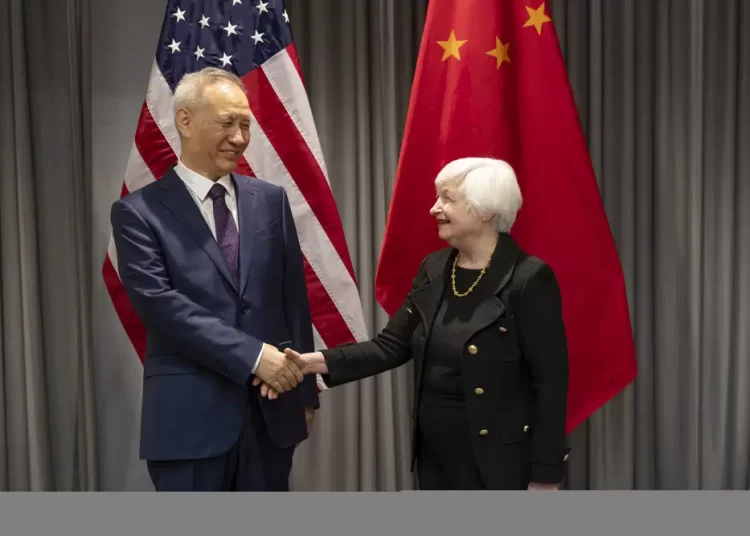ZURICH — US Treasury Secretary Janet Yellen met onWednesday with her Chinese counterpart and pledged an effort to manage differences and “prevent competition from becoming anything ever near conflict” as the two nations try to thaw relations.
Yellen’s first face-to-face meeting with Vice Premier Liu He was the highest-ranking contact between the two countries since their presidents agreed last November to look for areas of potential co-operation.
Liu, for his part, said he was ready to work together to seek common ground between China and the US.
“No matter how circumstances change, we should always maintain dialogue and exchanges,” he said.
The meeting comes as the US and Chinese economies grapple with differing, but intertwined challenges on trade, technology and more.
Yellen, in opening remarks in front of reporters, told Liu: “While we have areas of disagreement, and we will convey them directly, we should not allow misunderstandings, particularly those stemming from a lack of communication, to unnecessarily worsen our bilateral economic and financial relationship.”
She said the two countries “have a responsibility to manage our differences and prevent competition from becoming anything even near conflict.”
Both economies have their challenges.
The Chinese economy is reopening after a Covid-19 resurgence killed tens of thousands of people and shuttered countless businesses. The US is slowly recovering from 40-year-high inflation and is on track to hit its statutory debt ceiling, setting up an expected political showdown between congressional Democrats and Republicans. The debt issue is of keen interest to Asia, as China is the second-largest holder of US debt.
There is also the Russian invasion of Ukraine, which hinders global economic growth — and has prompted the U.S. and its allies to agree on an oil price cap on Russia in retaliation, putting China in a difficult spot as a friend and economic ally of Russia.
And high interest rates globally have increased pressure on debt-burdened nations that owe great sums to China.
“A wrong policy move or a reversal in the positive data and we could see the global economy head into a recession in 2023,” said Josh Lipsky, senior director of the Atlantic Council’s GeoEconomics Centre. “Both countries have a shared interest in avoiding that scenario.”
The World Bank reported last week that the global economy will come “ perilously close ” to a recession this year, led by weaker growth in all the world’s top economies — including the US and China. Low-income countries are expected to suffer from any economic downturns of superpowers, the report said.






Discussion about this post